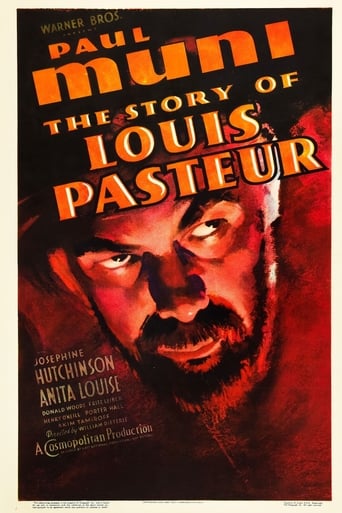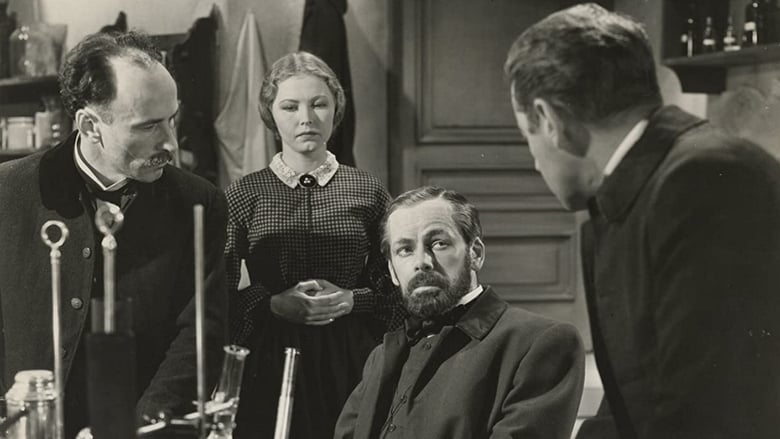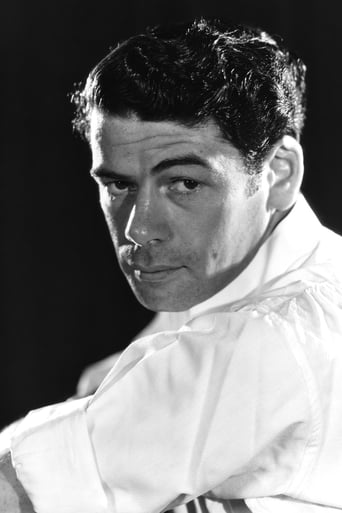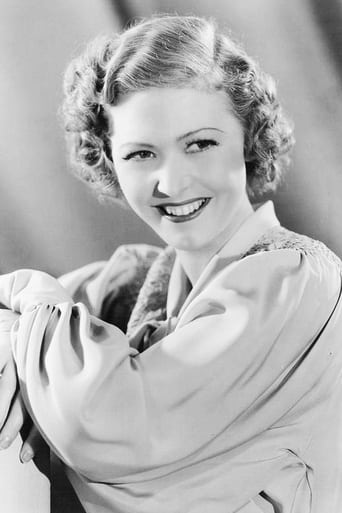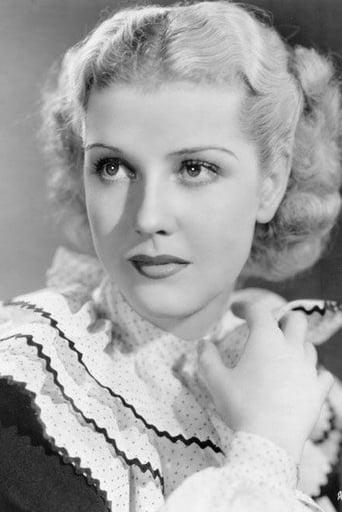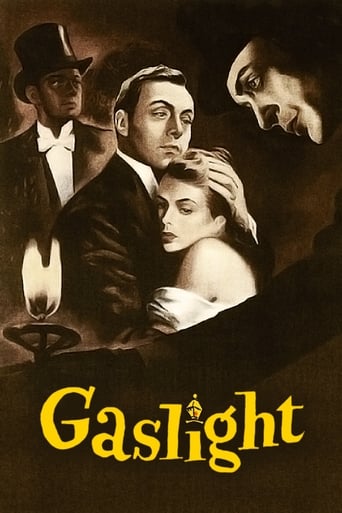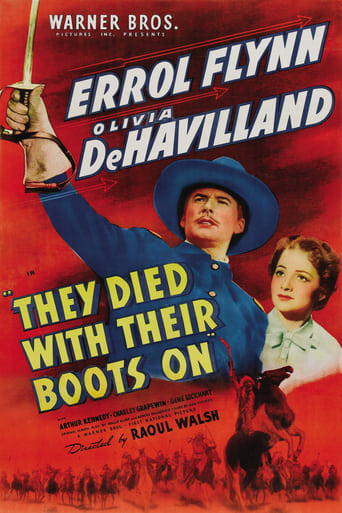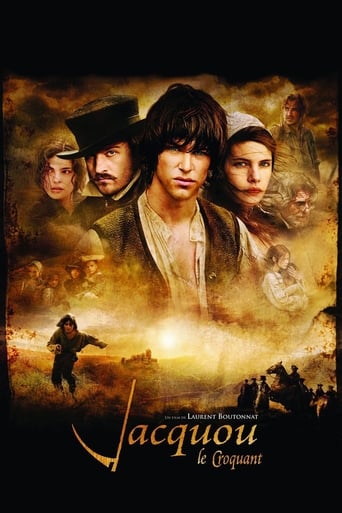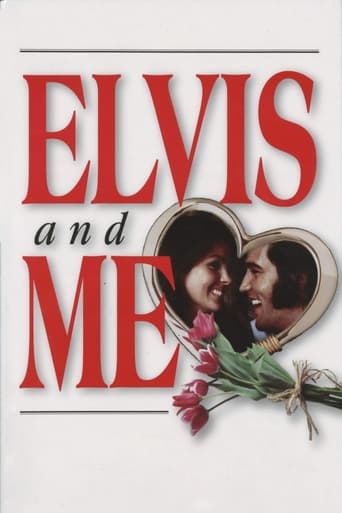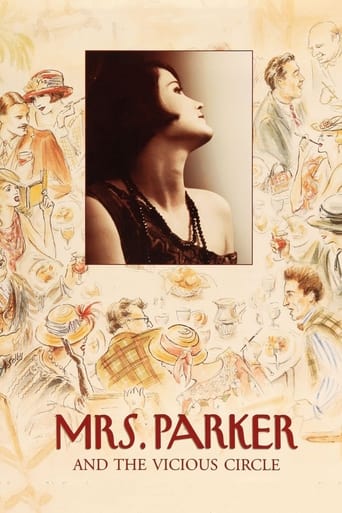The Story of Louis Pasteur (1936)
A true story about Louis Pasteur, who revolutionized medicine by proving that much disease is caused by microbes, that sanitation is paramount and that at least some diseases can be cured by vaccinations.
Watch Trailer
Cast


Similar titles
Reviews
Best movie of this year hands down!
A Major Disappointment
The film makes a home in your brain and the only cure is to see it again.
This story has more twists and turns than a second-rate soap opera.
Louis Pasteur was an important and pioneering figure in his field and ever, and his discoveries were revolutionary. He also had a very interesting life well worth telling, and one that lends itself well to film. Even though a film would not be able to cover everything about his life, it was an eventful personal life and he revolutionised so much. It would fare even better as a mini-series.'The Story of Louis Pasteur' was one of the first biopics that came to be (and also the first of those from Warner Brothers), and it is one of the better early ones. Although not quite one of my favourite biographical films of all time, 'The Story of Louis Pasteur' is a fine example of how to do it right. Meaning that of course there would be fictional elements, and it is these elements that ring the least true here, but the subject, their personal life and what made them so important are treated with respect and not rose-tinted, distorted or falsified. Pasteur is still a very interesting man and we do see what made him a pioneering and revolutionary figure. 'The Story of Louis Pasteur' is at its weakest in the romantic element of the story, which didn't engage as much as the rest of the film and didn't fit as well either.Also the performances of Anita Louise and Donald Woods who struck me as a little colourless. Wouldn't have said no to 'The Story of Louis Pasteur' being longer, it did feel too brief and one does wish that there was even more to the story than was told. However, the story is thoroughly compelling and while not everything is there it does focus on what were particularly revolutionary and in a way that engages a lot and are very intriguing, found myself learning a fair bit. Found myself relating to Pasteur with his struggles against adversity and his eventual overcoming, having been there myself.One does not notice that 'The Story of Louis Pasteur' is low budget, it is lovingly photographed and handsomely designed. The script is literate without being worthy and very thought-provoking with a surprising amount of complexity and respect for the subject and the ability to entertain and educate. The direction keeps the film moving along briskly with few dull spots. The film is particularly worth seeing for the terrific and deservedly Oscar-winning performance of Paul Muni. The rest of the supporting cast are strong, especially Ftitz Leiber and Akim Tamiroff. Josephine Hutchison does very well with what she has.In summary, very good. 8/10 Bethany Cox
This true story of the French scientist's battle to establish modern medical methods is not to be missed. It features Paul Muni's Academy Award winning Best Actor performance. The strong supporting cast includes: Josephine Hutchinson as his dependable wife, Anita Louise as his daughter, Dickie Moore as a child who gets rabies, and Henry O'Neill, Porter Hall and Akim Tamiroff (among others) as doctors. The film also won both writing Oscars and was nominated for Best Picture too. Directed by William Dieterle.Pasteur is an outstanding scientist, one whose discipline and methods allow him to achieve great insights, enabling him to discover the root causes of deaths in livestock and people (e.g. germs). Unfortunately, since he is not a doctor, much of what he learns is discarded or viewed with suspicion, seemingly none of what he says is believed. However, during his struggle for credibility, he slowly wins over his former critics and is recognized today for many great accomplishments, including the discovery of several diseases, how they spread, and preventative vaccines.
These biographies of scientists and other notables of the past, made in the 1930s, often by Warners, are almost always enjoyable as well as instructive. Oh, the life stories are generally polished and simplified but sometimes we really don't want or need a more complex portrait. "Lawrence of Arabia" was pretty challenging but activated all our critical faculties. That's work.Louis Pasteur, Paul Muni here, believed in the germ theory of disease at a time when the French Academy didn't. According to this movie, they believed in spontaneous generation -- that organisms emerged whole from suitable environments. Speaking from a position of expert ignorance, I recall from a course in microbiology that the notion of spontaneous generation had already been dispelled by F. Redi and Lazzaro Spallanzani. Yet, here we have the Academy believing that mosquito larvae grew out of stagnant water by themselves. I think, though, that Pasteur more or less applied the germ theory by developing vaccines that conclusively wrapped up the issue.The script adopts the usual pattern. Nobody believes in what Pasteur is doing -- discovering why wine went sour, trying to cure anthrax and rabies and puerperal (or childbirth) fever. I'd thought most of the credit for the last was due to Ignaz Semmelweis, who noticed that more women died in childbirth while in the hospital than at home. In his facility, doctors went directly from practicing on cadavers to aiding in childbirth -- without washing their hands. Semmelweis was an interesting guy who only get a brief mention, once, early in the film. He also invented a crude stethoscope so that the doctor didn't need to press his ear directly on a woman's, er, bosom. Like many other innovators, including Pasteur, Semmelweis was ridiculed and eventually wound up in a mental facility.But that's off track. Despite doubts and ridicule, Pasteur, his ideas and his methods, prevailed. Surprisingly, there is no mention of "pasteurization." Joseph Lister ("Listerine") appears briefly.What a time it was -- the last half of the 19th century, with a scientific revolution going on. Not just Pasteur, Semmelweis, and Lister, but Koch, Fleming, and Edward Jenner (who found a vaccine for smallpox). Freud was born in 1856, three years before Darwin publish "The Origin of Species." Paul Muni is good as the impatient Louis Pasteur who receives his just honors at the end. He's often criticized for overacting, attributed to his origins in the Yiddish theater. I don't find him at all outrageous and often extremely effective. I was an usher in the Yiddish theater for a while. Now THAT'S overacting! The rest of the cast is professionally competent. There are better examples of the genre -- Edward G. Robinson in "Dr. Ehrlich's Magic Bullet", for instance. But this occupies a respectable place in the genre.
It was the latter half of the 19th century. The year was 1860, ten years before the French Third Republic came into being. Medical Science hadn't made the kind of advancements that it saw later, and disease and death were in abundance. It was a well-known fact that thirty percent of women died in childbirth due to Puerperal fever, better known as childbed fever, accounting for about twenty thousand annual deaths in the city alone! Yet there was a grave ignorance of monumental proportions, even as one man, a chemist dared to think differently. He urged medical practitioners to boil their instruments; or in modern parlance, 'sterilize' them, before using on patients in addition to thoroughly washing their hands with a disinfectant before working on patients. He firmly believed that more than half the deaths were caused due to lack of hygiene and the transmission of 'germs' from objects such as the doctor's instruments! Not surprisingly, the man was laughed at, and written off to be a charlatan, a quack! After all, what would a chemist know, that the doctors couldn't see! But the man had seen it all. He had first discovered what causes wine to go sour. His relentless experimentation in his laboratory had helped him discover that microorganisms were the major cause of disease (while the doctors still firmly believed that these organisms were a result of disease rather than the cause!).The man was Louis Pasteur. And the technique he gave to the world was pasteurization! William Dieterle's 1936 biographical film "The Story of Louis Pasteur", at its modest 85 minutes length, is a tad short to even qualify for a proper biographical film. It begins on a rather startling note with the scene of a doctor being shot by a silhouetted gunman. One wonders if they've taken cinematic liberties to such an extent as to make the lead actor Paul Muni feel at home owing to his crime film beginnings! It is later learnt that Pasteur is indirectly responsible for the murder of the doctor, for reasons best left for the viewer to find out! It's a rather silly beginning, one the film could've easily done without. "The Story of Louis Pasteur" does take a few minutes to attain a grip on its narrative which eventually does make for very engaging drama.It is astonishing how a simple film revolving around a man and his microscope has been made into something so riveting, that you can't take your eyes off, once it picks up steam. The primary focus is on Pasteur's taxing attempts to prove to the then Emperor Napolean III, his findings about the microscopic creatures and their connection to disease, and later, post the advent of the Third republic, his diligent attempts at developing the first successful vaccines for deadly diseases like Anthrax and Rabies. Of course, there is resistance to his claims and discoveries, more specifically from Pasteur's most vocal critic, Dr. Charbonnet (Fritz Leiber). As the audience, our hearts go all out to Pasteur and we find ourselves rooting for the industrious scientist. We watch with bated breath and find ourselves praying for him to succeed in his experiments, even when we are well aware of the eventual outcome. We feel the triumph felt by Pasteur when he weeps tears of joy upon tasting victory! But Pasteur didn't succeed instantly. There were numerous failed attempts and broken test tubes and dead ends from whence he found new directions. The entire medical fraternity turned against him but he stood his ground and ended up having the last laugh anyway! But the path to victory wasn't easy for him, and "The Story of Louis Pasteur" succeeds in conveying to us, this particular facet of Pasteur's dedication to science. It is heartening to watch Pasteur and his loyal team of scientists toil away in the laboratory attached to his house, as his devoted wife Marie (Josephine Hutchinson) cooks supper for the entire team and also stands by her husband through thick and thin. It is awe-inspiring to see him stumble upon clues almost by accident that lead him to make some of the most startling discoveries known to mankind now. It is also slightly scary to see him succumb to a suggestion of using an untested vaccine on a little boy who is supposedly at death's door anyway! The film may appear somewhat dated with regard to the set design and slightly poor production values. But that is hardly a hindrance, thanks to the gripping script and taut editing. There are some subplots in the film, that weren't entirely necessary, though; that of a romance between Pasteur's daughter Annette (Anita Louise) and the young Dr. Martel (Donald Woods) who wins Pasteur's favor earlier in the film. It seems to be there merely to dramatize the proceedings. Ditto for the climactic twist of fate in the final few minutes when Annette is on the brink of delivering a baby. The events in those last few minutes seem contrived to the extent of being melodramatic, although, by then you are so in love with the protagonist that you don't care for the minor hiccups. Because mostly, apart from the solid performance of Fritz Leiber, it is the magnificent Paul Muni that holds our attention.The under-appreciated Paul Muni, in his Oscar winning performance of the steadfast scientist, manages to render this film much more watchable than it actually is. It is his earnest act that ultimately salvages even the weakest scene. His final speech, just minutes before "The End" flashes on the screen, as he struggles with a walking stick, thanks to being in a recovery phase from a paralytic stroke, is nothing short of inspiring! Paul Muni should be reason enough for anyone to look up "The Story of Louis Pasteur". They don't make 'em like him anymore! Score: 8/10

